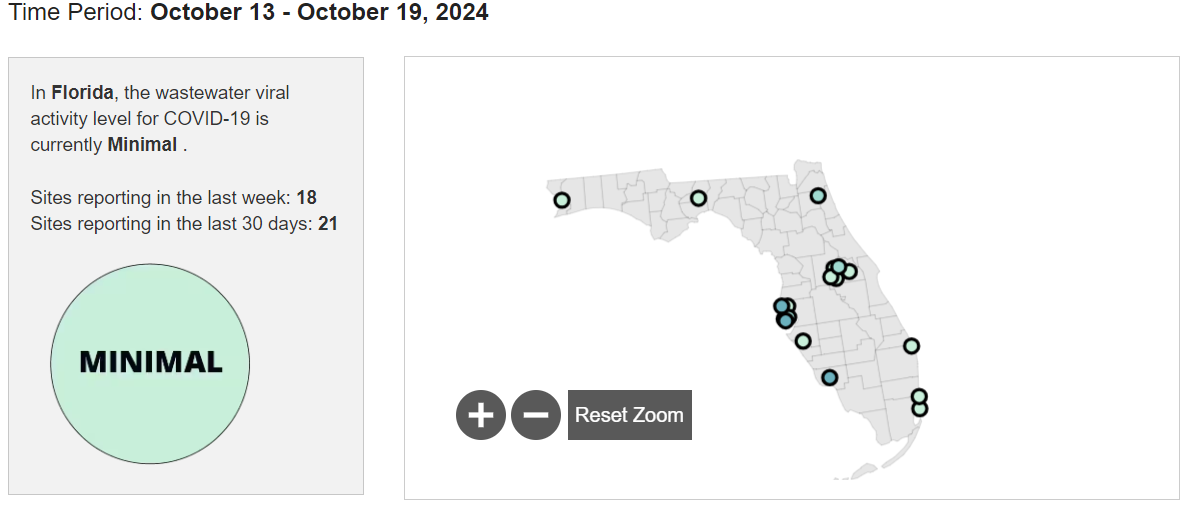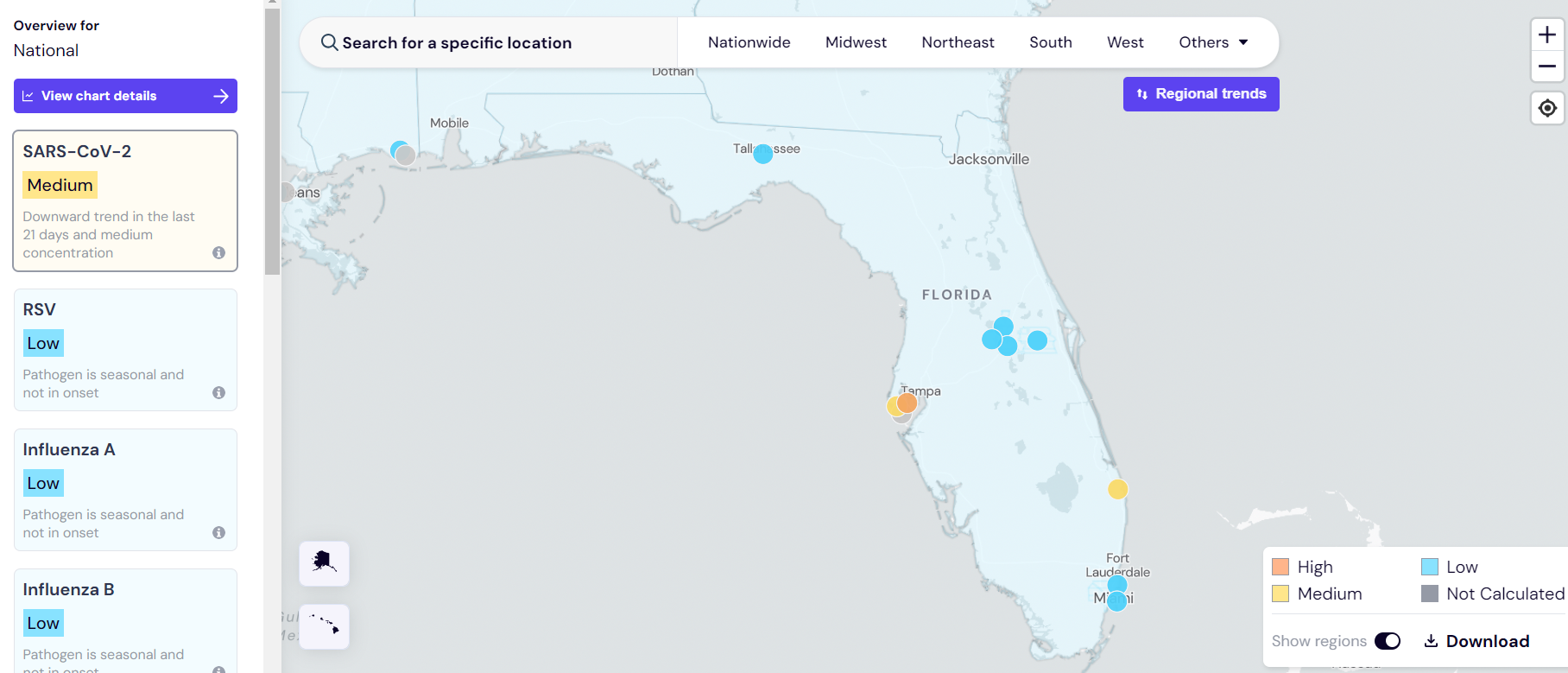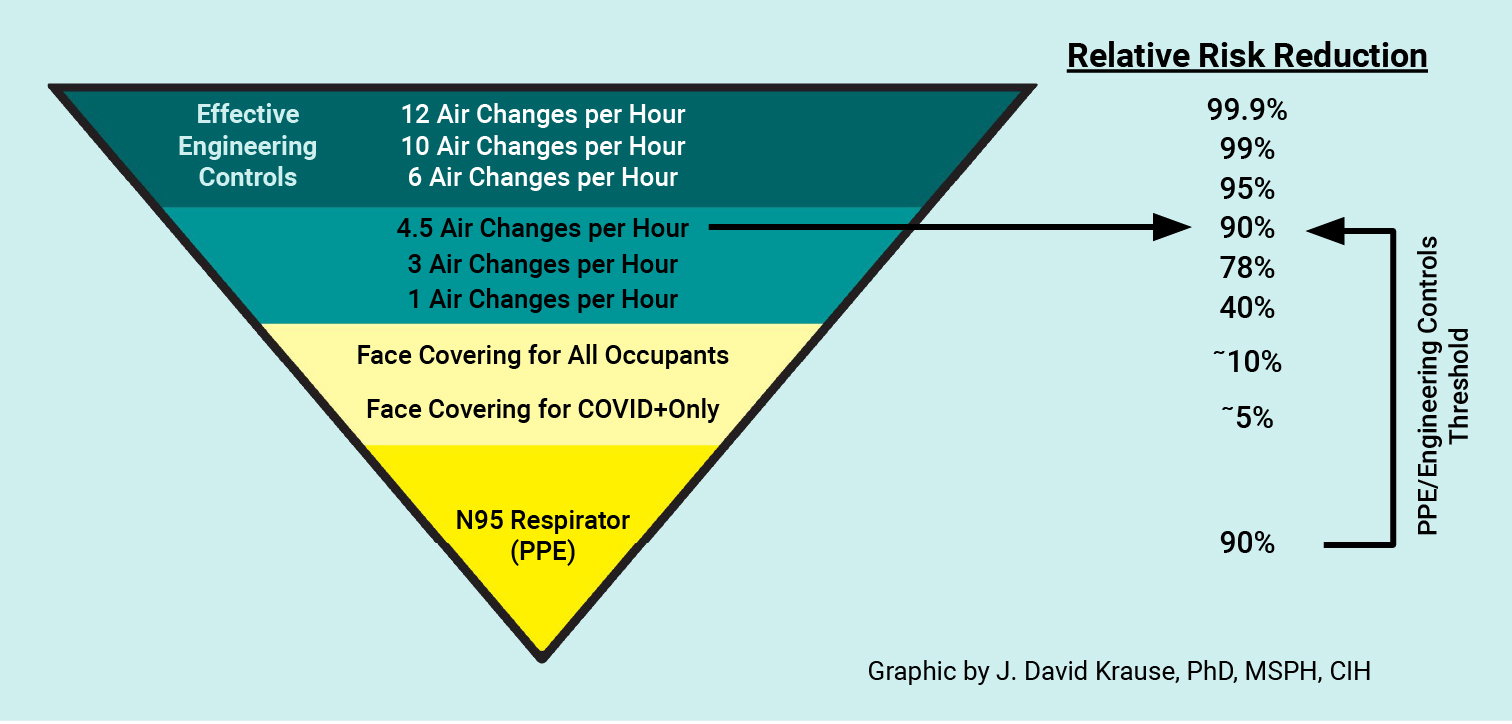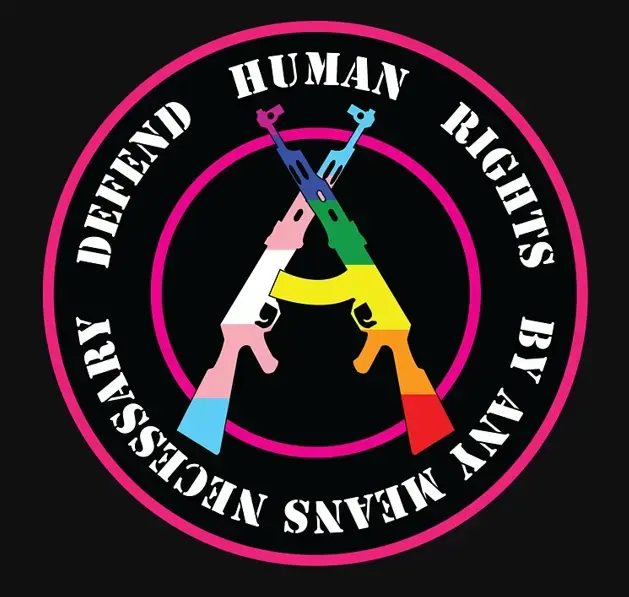I don’t really leave the house that often, mostly to walk the dog, but I don’t then cuz it’s a huge open air space.
I do on the bus because of how confined it is and how many people use/touch it, but besides that I have no idea.
Do you always have to wear a mask in these places? Or just when there is a covid spike?
How do you even know when there is a covid spike for that matter?
I'd assume most people here would recommend wearing it anytime you're in an enclosed area with other people.
Definitely any indoor public space, I'll ask friends if I'm going to theirs, and outside it depends.
Always indoors. Always in crowded outdoor areas, but I rarely deal with that shit. Tbh, since I have to mask at home, when I go out I rarely even bother taking it off even if I'm not around other people outside. Just easier to leave it on.
I watch wastewater, but in all reality the "lull" between surges is so high we don't really get a break anymore. Best to assume you are always in active area.
For reference, https://www.cdc.gov/nwss/rv/COVID19-nationaltrend.html puts us at a 'low' wastewater level ATM, 1.94 nationally. April 2022 was about the same. The difference is, in 2024 far more people have been disabled by the pandemic and have compromised immune systems, and in 2022 almost everyone was up to date on their vaccines. Right now, a negligible number of people who aren't 65 or older or immunocompromised have their vaccines up to date. So IMO it makes very little sense that if your calculation in 2022 was to always mask (which was the case for everyone who wasn't an antimask psycho at the time), there's no reason other than peer pressure to be anal about when to mask or not in 2024.
imo, the CDC can lick my BLEEEEEEEEEEEEEP. We're monitoring far less locations now and they've been so manipulative with their maps that it's criminal. Florida has 67 counties and the CDC has 20 locations spread among 10 of them. They average sites together that are nowhere near each other and then call it good with a MINIMAL.
Show
Meanwhile over on the wastewaterscan.org dashboard...
Show
The high lulls are maintained by spikes occurring in the unmonitored areas, viral spread isn't as simple as each person infects one or two people and that's how lulls are kept as they are. Viral spread needs spikes in order to make up for the people that don't spread. those are then averaged out in the wastwater and give us a "level" lull. There are random spikes occurring in unmonitored areas that people are spreading into the monitored areas.
edit: I really need to figure out how to explain this better. Maybe a with video or something.
Thanks for the source! Also, it really is a tragedy how monitoring has been completely gutted so on top of the government providing the conditions for capital to kill all of us, we also can't even attempt to make informed decisions because the information is simply not there.

Welcome! Yeah, I'm not a happy camper. Especially as the wheels on this crazy ride become more and more wobbly and we find ourselves having to deal with more than just covid. There's a big outbreak of walking pneumonia going on among kids now and I think one of my niblings has it. But hey, could be covid too. Who knows since no one is testing for anything.
I wear it indoors and outdoors all the time if there's anyone who doesn't live with me around. Makes finding a place to eat a bit tricky but I generally just take my food out to the most secluded place I can find and eat there.
Indoor public spaces, always. Outdoor public spaces, I would if it's crowded but I just don't go to any crowded events anymore.
How do you even know when there is a covid spike for that matter?
You can look at COVID wastewater levels for your region, but really because of how unpredictable it is you may as well just always assume we're in the middle of a surge.
Public indoors (like stores), crowded outdoors (farmer's market). Only caught it once, and it was directly from my parents who didn't quarantine as long as they should've.
I routinely go to small social gatherings without a mask, but this is very contingent on the fact that I have trustworthy friends.
Public transit, medical settings, and grocery stores should be always-mask even if we somehow solved covid, imo.
Covid can hang in the air like smoke, so basically any public indoor space, and any busy outdoor space. One sick person shedding virus, whether they present as sick or not, can fumigate a small area with covid for a while. It's best to assume there's covid around even when cases are low.
A small room with a few people? I don't worry about it that much outside of covid peaks, personally, but it kinda depends on how much you trust them to not lie about symptoms or recently being around someone sick.
If peer pressure or malaise of not doing stuff gets the best of you (this happened to a few people I know who are otherwise pretty covid aware still), at the very least look into nasal sprays like betadine.
They typically coat your nasal passage in with stuff that makes it hard for virus/allergens to survive. Betadine has something called iota-carageenen, which comes from seaweed, and it envelops small particles like a virus before it interact with your nasal passage and infect you. Other sprays have different formulas and do slightly different things, but essentially attempt the same type of thing. Betadine helps my allergies so in my experience I can tell it's intercepting allergens at the very least.
Not foolproof, and not a good sub for masks, but it helps your odds a bit.
And one of the ways covid can enter your brain is through the olfactory bulb in your nose, which is why so many people have long term problems with smell, so protecting that is probably a good idea.
Of the ones I've had experience with, I would recommend all the iota-carageenan based sprays: Betadine, Luca V-defense, Flo Travel Spray. What little studies they've done have shown at least some effectiveness. It coats your nasal passage with a thin film of carageenan which is derived from seaweed and traps small particles like dust and virus. Super-snot, basically. Doesn't irritate the nose like other sprays do.
I've also seen generic saline sprays with iota-carrageenan added, which should basically do the same thing.
Covixyl has done animal studies that showed effectiveness, but it stings which some people don't like. I used this a lot unti they added an xylitol that irritated my nose and made it start running for an hour.
Xylitol based sprays supposedly work, but it bothers my nose so I can't vouch for them. The main brand is called Xclear. They are easy to find. Supposedly changes the ph of your nose to make it hostile to viruses. Didn't work for my friend who used it when their partner was sick, but that might just be a limitation of nasal sprays generally.
There's also nitric oxide sprays, but the main developer of those types of sprays (Enovid) is based in Israel and it's not authorized for distribution in the US so you have to import it.
There were also some evidence that the ingredient in neosporin can trigger an immune response and fight of viruses that way, with some people suggesting you take a q-tip and apply a little bit to the inside of your nose when going someplace high risk, like taking a flight or whatever. But that's anti-bacterial and probably not a good idea to do too often. If you are doing something particularly high risk, like a concert in a crowded bar or something, I would do the q-tip thing on top of a nasal spray.
But if you are exposed to a lot of virus in the air for a long duration, these probably won't be enough to prevent infection, but reducing the amount of virus you are exposed to is a good thing.
For me it's major public spaces like when I go grocery shopping or in any enclosed space with large congregations of people, if it's outside I just gauge by how often I think I'll be around people and usually have one in my back pocket ready to go.
Recently I've been doing it in confined and crowded inside spaces like meetings and public transit
I should probably just start doing it 24/7 inside as we move into the winter
I wear a mask in all public spaces where I'm likely to encounter people, both indoors and outdoors, which functionally means I mask whenever I leave my room (I live in a dorm rn). To monitor the pandemic, I generally go with the Pandemic Mitigation Collaborative reports; it relies on wastewater data because that's the best we have now. I mask all the time irrespective of whether or not there is a spike, because even when there isn't a spike there's still a lot of COVID going around. That's just the world we live in now. The type of mask matters as well; an N95 will give a lot more protection than a surgical mask. That being said, any mask is better than no mask at all.
Any indoor space unless you regularly meet with people like a classroom. Any outdoor space with a lot of particulate matter. People like to pretend that is reliable enough that self-quarantining can help. Yeah... no. I just can't afford to alienate people that way.
I change them out a lot more than recommended. I am a tower of wet filth. I must be destroyed. That's unrelated though.
unless you regularly meet with people like a classroom
What do you mean? That is the exact, most important case where you should use a mask. I've done 3 years of college in person since the CDC gave up on the COVID lockdown and masked religiously since the beginning, have not caught COVID in college once. I don't think it would've been possible without masking given all the data about the effectiveness of masks.
I'll admit to being inconsistent in most places, but tend to regard it as a given for an indoor concert. My job is well ventilated and there's a fair amount of required taste testing, so touching my face/mask constantly would likely make the situation worse.
Additional question what level of indoor air filtration would it take to not need indoor masking?
most likely a level you're never going to encounter tbh. I wouldn't spend time trying to figure out when it's safe to unmask inside
this (unverified, honestly very questionable IMO) graph from back when more people were pretending to care, advocates for at least 4.5 full air changes per hour. My guess is even that won't matter for close contact spaces, but if some distance can be maintained maybe just aim as high as you can feasibly get.
Show
https://www.pnnl.gov/news-media/faster-air-exchange-buildings-not-always-beneficial-coronavirus-levels this is also interesting regarding whole-building ventilation systems.
but yeah if you have a properly rated hepa filter with a good CFM exchange in a single room like 500sq ft you can achieve meaningful reductions, but its probably not as good as an N95 unless you go crazy with it. Probably better as another layer for situations where you have to cohabitate than a replacement for masking, esp since doing 5,10,etc air changes per hour basically requires loud fans running at full blast.











